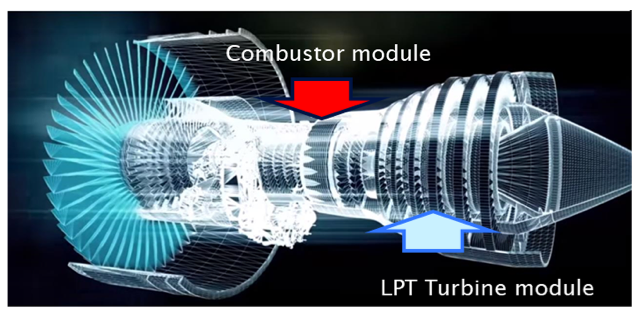In the aeronautical market, the demand for reduced fuel consumption is leading to new more complex engine architectures, oriented towards increasing propulsive efficiency.
Therefore, turbomachinery and combustor components are forced to operate in unexplored regions of their parametric design space, leading to the definition of parts that are conceptually different from their predecessors. New design processes are envisaged to overcome current limitations that are inherent to extremely long simulation chains, not industrially appealing. To this aim, Avio Aero will contribute to co-design the ACROSS platform needed to implement, develop and optimize the two complex design workflows that represent Aeronautic test cases: combustor and LPT modules.
In fact, engineering design capabilities will be more and more based on sophisticated CAE SW that needs, never like now, to be drafted inside Hardware. Requirements will involve, further to basic hardware itself, also networking specifications and advanced concepts such as HW-acceleration, parallelization strategy and HPDA and AI resources. Looking to the wider scenario of European jet engine manufacturers, this change of paradigm (more physics-based computer software, real-time oriented solutions and Big Data analysis) will facilitate a significant increase of competitiveness but securing, at the same time, a greener world for future generations.

Objectives
Objectives targeted in the present research project for the Combustor and Turbine Design Systems can be summarized hereafter:
- Introduce new, complex design workflows for the design of key aeronautical engines components, fully exploiting HPC capabilities, driven by AI and leveraging state-of-the-art HPDA to handle the huge amount of data involved.
- Innovate the existing Combustor design process by introducing a multi-physics unsteady approach to improve flow performance prediction and product durability/Life Cycle Cost, both aimed at developing safety aspects, with an eco-friendly vision in line with society needs.
- Innovate aeronautical turbine design by introducing HPC driven optimization systems, aimed at improving efficiency of the low-pressure modules and consequently markedly reduce planes’ fuel consumption. This research task is fully coping with Clean Aviation vision and agenda.


